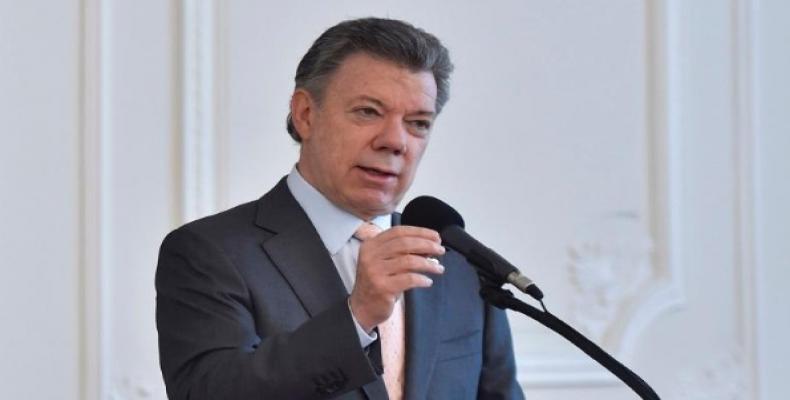Bogotá, October 30 (teleSUR-RHC)-- Colombia’s October 25th elections were the first since the historic meeting between Colombian President Juan Manuel Santos and the head of the Revolutionary Armed Forces of Colombia (FARC), Timoleon Jimenez; they served as important test of support for the government's strategy of pursuing a peace deal to end the five-decade-long armed conflict.
“After every election it is always said that democracy won, but these had an additional element: peace won,” Santos told El Heraldo in an interview published Wednesday. “This confirms, without a doubt, that Colombians want peace,” added the Colombian head of state.
Santos reached this conclusion as a result of the support received by parties that belong to his ruling National Unity coalition, comprised of centrist and center-right parties.
“With the exception of Casanare (Department), all of the departments shall be governed by leaders who agree with the reconciliation for all Colombians,” Santos told El Heraldo.
The biggest loser in Sunday's elections seemed to be the party of far-right former President Alvaro Uribe. His party, the Democratic Center, received fewer than 1.5 million votes.
In the presidential election that preceded these local elections, the candidate for the Democratic Center received nearly 7 million votes in the second round. Sunday's results represented a significant drop in support for the party largely built around the personality of Uribe.
As a result, Uribe's ability to claim that he represents the political opinions of half the country will be severely diminished.
Uribe and his allies are firmly opposed to the peace process, making it the center of their criticisms of the government.
Santos feels confident, even though the Democratic Center is a strong political force, that peace in Colombia can happen without the support of the former president and his party.
“I would prefer a peace with Uribe. But peace without Uribe is possible, if he ultimately remain opposed,” said Santos.
He added that support for the peace process has grown as the public realizes the progress being made and that what Uribe and his supporters have said about the peace process prove to be false. Uribe maintains, among other claims, that the peace process will result in impunity for combatants.
“People ... are becoming convinced that the best thing that can happen to this country is the signing of a peace deal,” said Santos.
A final deal is closer than ever, both parties have committed to have a final deal signed by late March, 2016, though Santos signaled that a deal could come even sooner and a bilateral cease-fire could come as soon as December.


